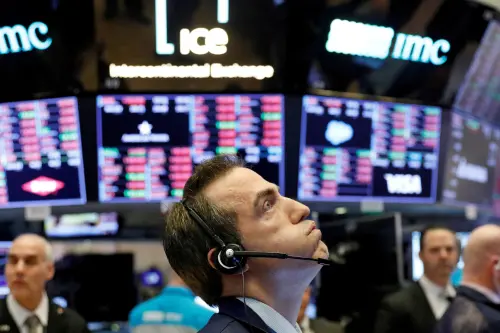Investors found reassurance in U.S. President Donald Trump's pledge to cut taxes in a significant address to Congress but expressed worries about his continued emphasis on tariffs and a proposal to eliminate a semiconductor chip manufacturing subsidy.
Trump's comments arrive at a crucial juncture for markets, shifting from post-election optimism to concerns that his policies are hindering economic growth and fueling inflation.
In a pivotal move, Trump urged Congress to extend his tax cuts proposal, well-received by investors. Nonetheless, he also announced plans to impose reciprocal tariffs on April 2, a decision that could unsettle financial markets.
Anthony Saglimbene, chief market strategist at Ameriprise Financial, noted, "The market volatility related to tariffs is likely to persist, given the apparent rigidity in policy or willingness to retract from these tariffs. The reiteration of tax cuts by Trump is viewed positively by markets."
Major U.S. stock indexes faced volatility on Tuesday following Trump's tariffs on imports from Mexico and Canada and an increase in duties on Chinese goods to 20%.
The S&P 500 has now retreated to negative territory for 2025, while the Nasdaq Composite temporarily dropped over 10% from its peak in mid-December before a partial recovery on Tuesday.
During Trump's speech, the dollar and U.S. stock futures partially recovered from their losses.
Michael Schulman, chief investment officer at Running Point Capital Advisors, mentioned, "Cutting taxes will drive business spending as long as companies believe consumer spending will follow. Overall, investors are likely to react positively as disposable income may increase with the implementation of these policies."
Art Hogan, strategist at B. Riley Wealth, highlighted concerns about Trump's stance on tariffs as worrisome.
Trump's suggestion on Tuesday to eliminate a landmark semiconductor chip manufacturing subsidy worth $52.7 billion raised more worries. Charu Chanana, chief investment strategist at Saxo, described the potential impact on investment strategies, supply chain resilience, and U.S. competitiveness in chip manufacturing.
Chanana noted, "A reversal of the CHIPS Act represents a significant shift, potentially causing companies relying on government support for domestic production to reconsider expansion plans and allowing foreign competitors to gain an advantage. Market response will hinge on whether this move is political maneuvering or a true policy shift."
